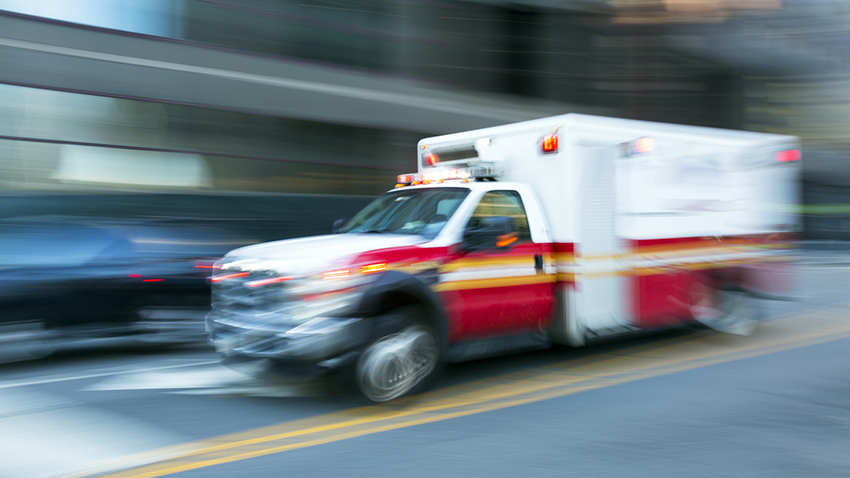Medical neutrality is the principle of non-interference with medical services in times of armed conflict and civil unrest. Medical neutrality requires:
- The protection of medical personnel, patients, facilities, and transport from attack or interference; 2. Unhindered access to medical care and treatment; 3. The humane treatment of all civilians; and 4. Non-discriminatory treatment of the sick and injured. (Introduction to Medical Neutrality, Physicians for Human Rights)
The principle of medical neutrality is included in the Geneva Conventions and their Additional Protocols, which set the standard for International Humanitarian Law.
Attacks on ambulances are a complete violation of international humanitarian laws. Even if there’s a war, there are certain rules. Attacks on health facilities and workers violate international law and interfere with fundamental protections of the right to health.
It is important to recall that the violation of medical neutrality is a common feature in many conflicts. Kashmir is no exception. The mayhem and bloody day in Shopian on Sunday once again reminded the situation, people of Kashmir face each time during any civilian uprising. It can be depicted by an act of forces, taking a civilian as a human shield at the encounter site that became the first casualty and lost his life in alleged crossfire. What followed was more tragic. The forces stopped ambulances, ferrying injured ones who were protesting. The wanton force used against unarmed civilians including kids, firing bullets and pellets indiscriminately suggests the height of lawlessness and impunity of forces.
The forces stopped ambulance en route from Shopian to Srinagar carrying pellet-hit injured. Government forces stopped an ambulance in Pulwama bearing number JK 22A 1092 which was ferrying pellet-hit injured youth from Shopian to Srinagar, delaying reaching to the hospital by one-and-half hour (Kashmir Narrator Apr 1, 2018). An ambulance driver said that police smashed windowpanes of his vehicle while he was ferrying injured to hospital. The ambulance drivers said that they were also subjected to checking and frisking at Bandzoo and Pampore areas of Pulwama (RK Apr 4, 2018.)
The International Humanitarian Law including Geneva Conventions to which India is signatory provides:
Geneva Convention I
Article 35 of the 1949 Geneva Convention I provides:
Transports of wounded and sick or of medical equipment shall be respected and protected in the same way as mobile medical units. Should such transports or vehicles fall into the hands of the adverse Party, they shall be subject to the laws of war, on condition that the Party to the conflict who captures them shall in all cases ensure the care of the wounded and sick they contain. The civilian personnel and all means of transport obtained by requisition shall be subject to the general rules of international law.
Geneva Convention IV
Article 21 of the 1949 Geneva Convention IV provides:
Convoys of vehicles or hospital trains on land or specially provided vessels on sea, conveying wounded and sick civilians, the infirm and maternity cases, shall be respected and protected in the same manner as the hospitals provided for in Article 18, and shall be marked, with the consent of the State, by the display of the distinctive emblem provided for in Article 38 of the Geneva Convention for the Amelioration of the Condition of the Wounded and Sick in Armed Forces in the Field of August 12, 1949.
The First Geneva Convention states that there should be no “obstacle to the humanitarian activities” and that wounded and sick “shall be respected and protected in all circumstances.”
Article 19 demands that medical units, i.e. hospitals and mobile medical facilities, may in no circumstances be attacked.
Additional Protocol I
Article 21 of the 1977 Additional Protocol I provides: “Medical vehicles shall be respected and protected in the same way as mobile medical units under the Conventions and this Protocol.”
Additional Protocol II
Article 11(1) of the 1977 Additional Protocol II provides: “Medical … transports shall be respected and protected at all times and shall not be the object of attack.”
Despite these safeguards, the government forces have been seen stopping and attacking ambulances at no. of times. 50 ambulances were attacked in Kashmir at the beginning of 2016 uprising. The activists blamed government forces. Photos, videos and eyewitness accounts of government forces allegedly attacking ambulances have flooded the Valley. (Hindustan Times, July 13, 2016). ‘Forces attack ambulances to ensure injured succumbs.’ ( KR Aug 7, 2016). During 2016, seven ambulances drivers were injured and more than 200 ambulances were damaged. (GK Apr 3, 2018)
Attacking hospitals and ambulances is a crime under the International Humanitarian Law and government forces have been repeatedly accused of this crime in Kashmir. It is a violation of medical neutrality. There is absolute lawlessness and impunity enjoyed by the government forces in Kashmir and this must be condemned by the people of conscience in India and internationally.
Abrar Reyaz is a student of Law at Department of Legal Studies, Central University of Kashmir. He can be reached at: abrar_reyaz@live.com



